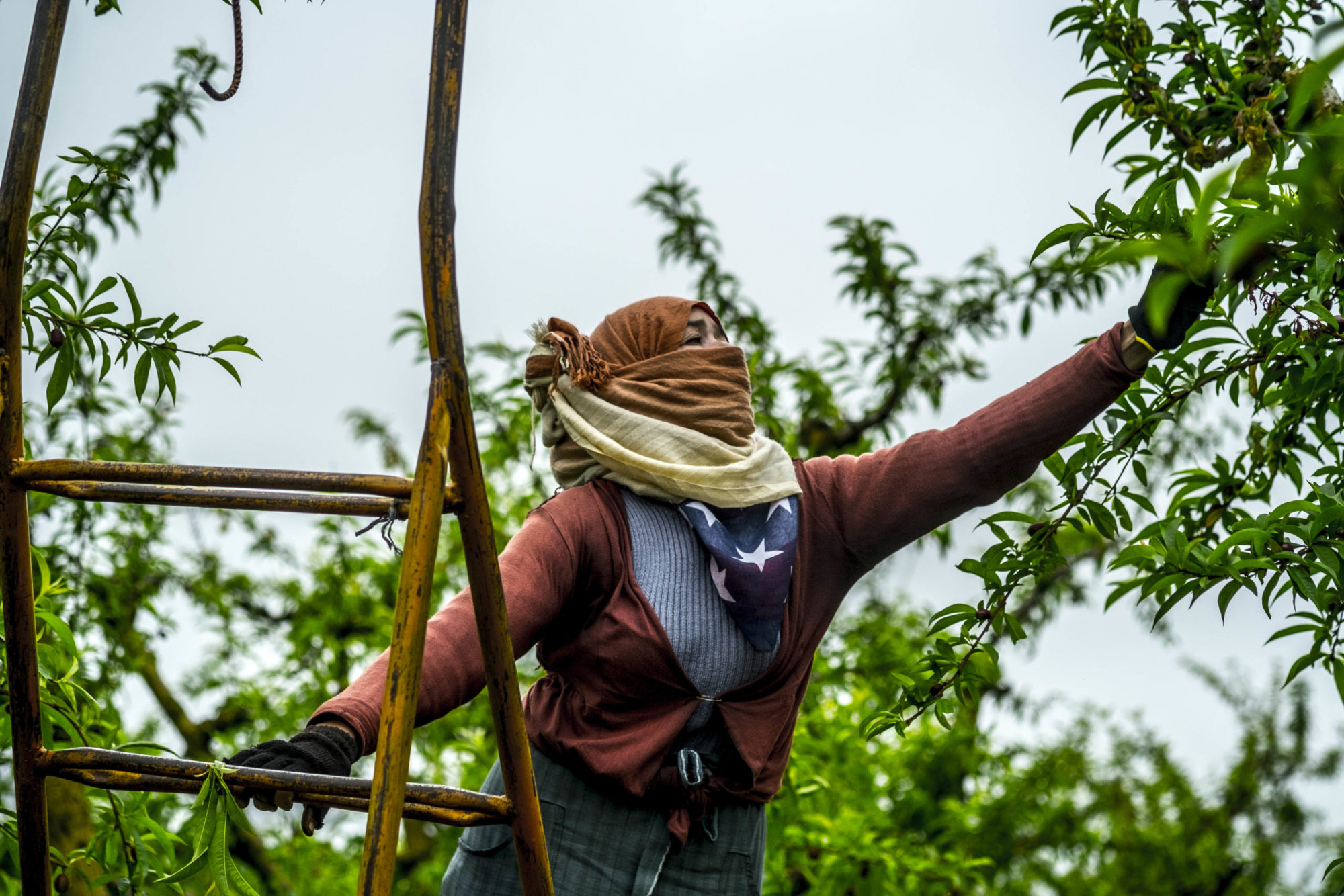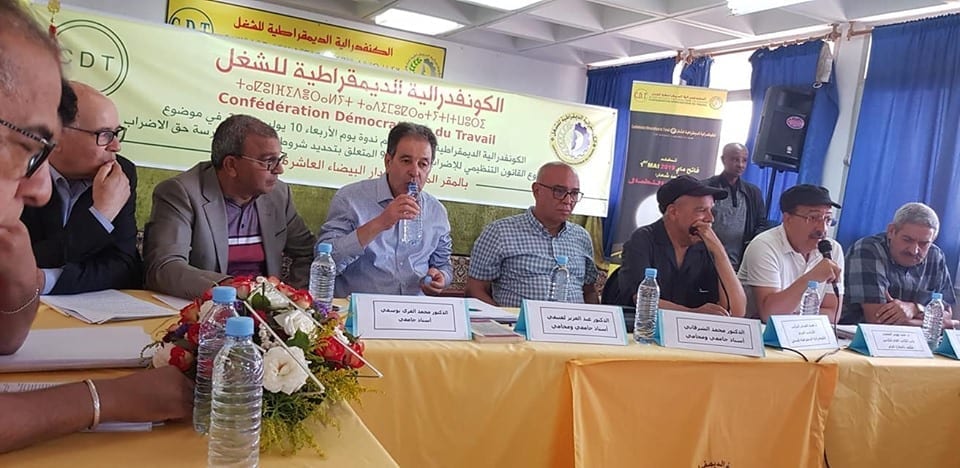Across the Middle East and North Africa, unions and worker associations are mobilizing to educate workers about their rights during the COVID-19 crisis, provide them with resources to protect themselves and their families, and push for fair treatment at the workplace....

In Morocco, the Solidarity Center builds the capacity of workers and local unions through leadership development and advocacy for the rights of women, including agricultural workers. Credit: Solidarity Center/Zineb Arraki
Union Women Rock 16 Days of Activism Against GBVH
During the recent 16 Days of Activism Against Gender-Based Violence, workers and their unions from Honduras to Kyrgyzstan, Morocco, Nigeria and Bangladesh made big gains raising awareness about gender-based violence and harassment at work (GBVH) and demanding that...
Workers Protest Morocco’s Moves to Limit Strikes
Workers in Morocco are protesting unilateral moves by the government to restrict strikes and limit other worker freedoms and are collecting signatures against a draft bill, now in parliament. “The path the government wishes to follow by introducing this legislation on...



